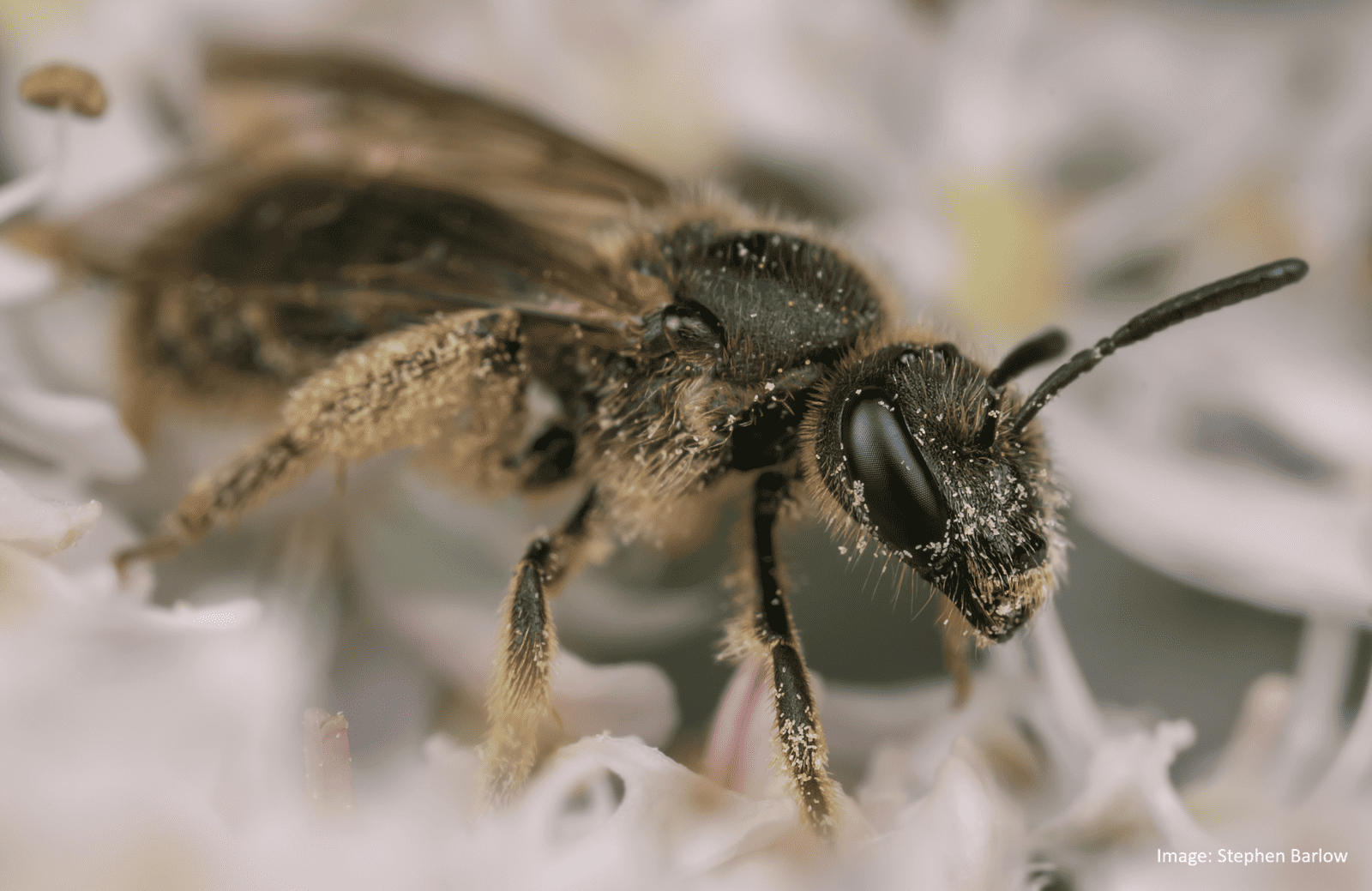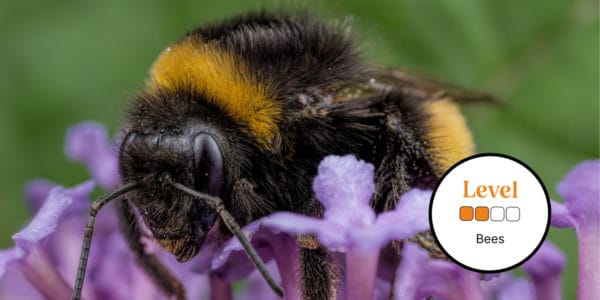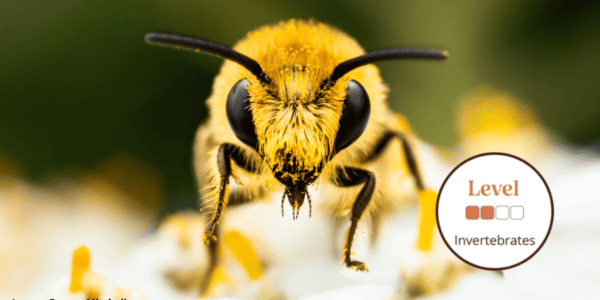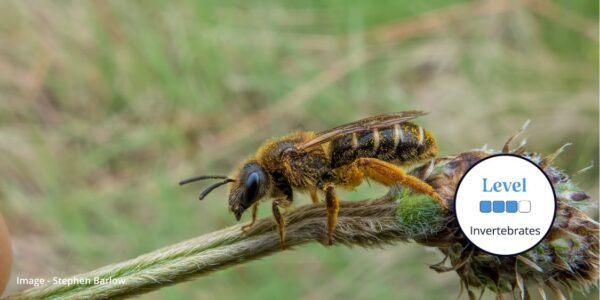This course will introduce you to the identification and ecology of solitary bees, including nesting and foraging requirements, hosts, and associated aculeate nest parasites.
This course will introduce you to solitary bee identification techniques, key features for discrimination, and will provide you with an understanding of the importance of these species for conservation, ecology and recording.
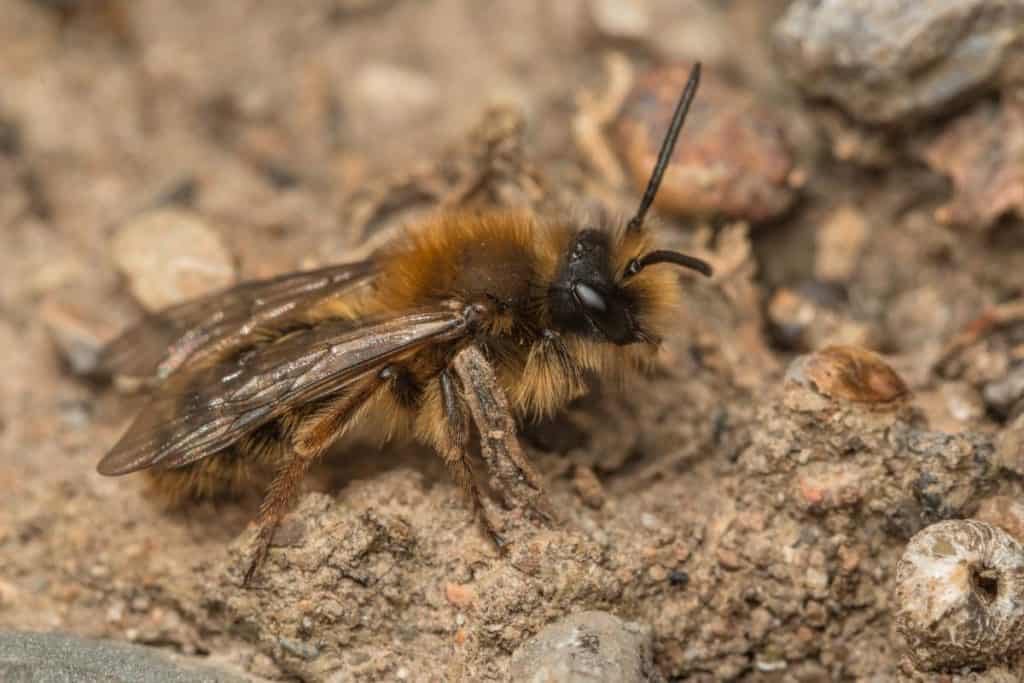
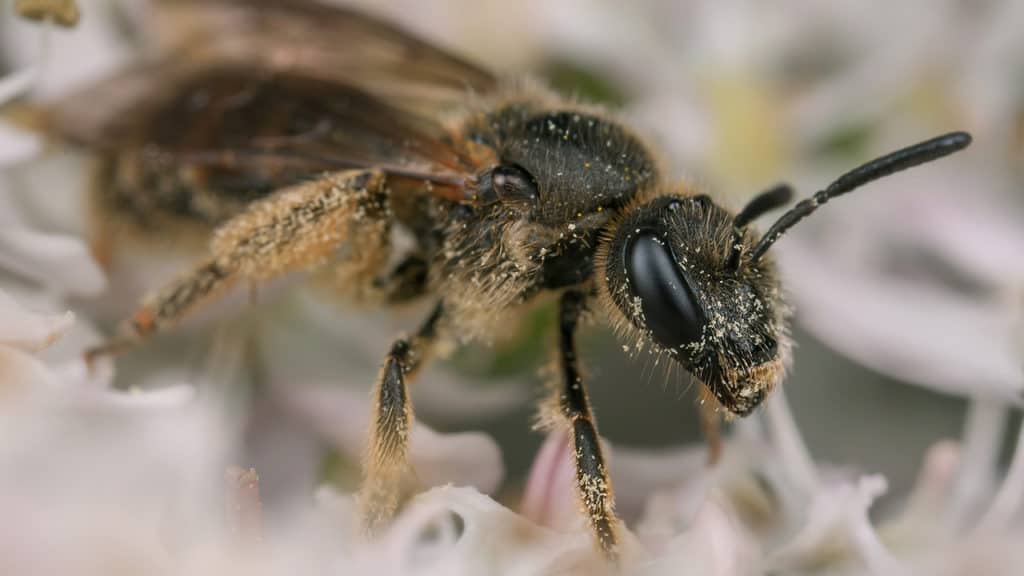
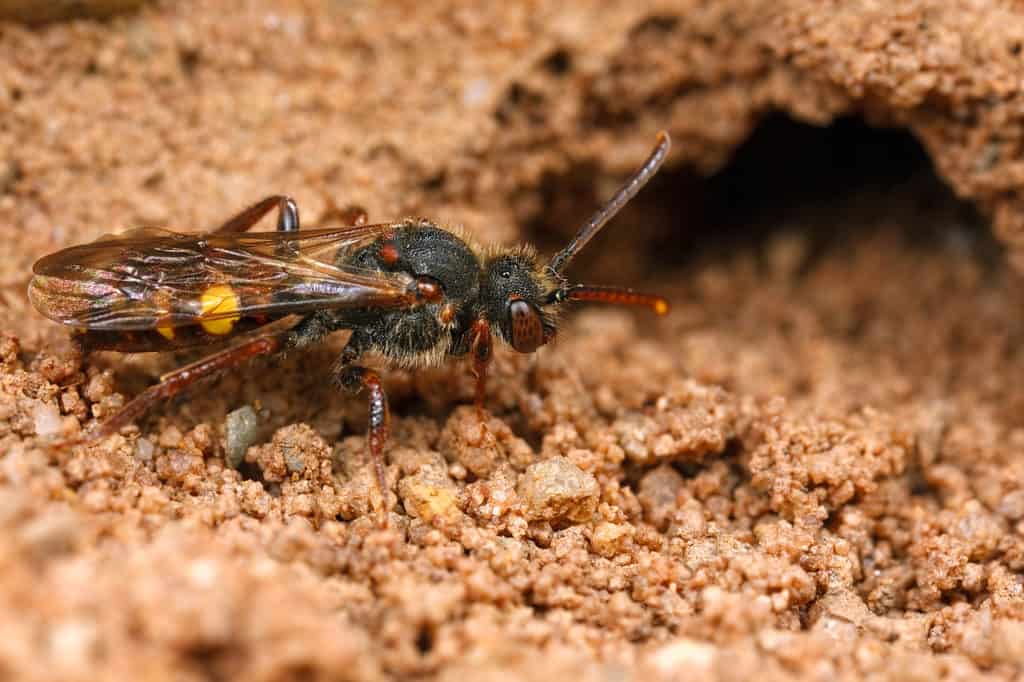
Read More
Introduction to the genera and species will be through a combination of presentations, field visits, and microscope workshops using keys and prepared specimens. Each presentation will use photographs to point out the key features used in the identification guides that we will use over the weekend. The evening sessions will focus on taking specimens through keys allowing participants to build up their knowledge of each genera commonly found in Britain. The field visits will enable you to put into practice what knowledge you have gained over the weekend and further your appreciation of these fabulous insects and their needs. We will talk about specific plant associations where relevant, nesting sites and materials used and look around such sites in an attempt to identify nest parasites.
What will be covered during this course?
The course will be delivered through a combination of seminars, laboratory identification sessions and practical field work. The content should be carried out mainly in the field, by visiting a range of habitats where the specimens can be identified within an ecological context. Specimens may be taken back to the laboratory for examination with lenses and microscopes.
- Identification of genera and commonly encountered species
- Naming of body parts important in identification
- Surveying, collecting and biological recording techniques
- Techniques for species identification; presenting voucher specimens for referencing
- Solitary bee life cycles; ecological relationships
By the end of the course, you will be able to:
- Identify the most common solitary bees to genera in the field, with reference to their ecology
- Identify specimens of British species using standard texts and dichotomous keys
- Critically evaluate a range of methods for species surveys and collecting specimens
Who Should Attend? Natural history enthusiasts, students, rangers, ecologists, and environmental professionals. This intermediate level course is open to anyone with some knowledge of the subject. This course is suitable for 18 years and over only.
Knowledge Level – Intermediate. Level descriptors can be found on the following web-page: Framework and Course Level Descriptors
Your course takes place on a 12-hectare estate, surrounded by a rich range of habitats, including the River Severn and semi-ancient woodland, set in the heart of Shropshire with views disappearing into Wales.
There are two booking options which all include course tuition, meals and refreshments:
- Non-Resident (Breakfast not included)
- Resident (Sole Occupancy)
For course bookings including accommodation please note bathroom facilities may be shared.
MMU Student Information
MMU students – please email [email protected] to book your course place.
Accreditation
This is one of a series of courses (units) run jointly with Manchester Metropolitan University (MMU) contributing to the MSc Biological Recording and Ecological Monitoring and the Postgraduate Certificate in Biological Recording. MMU students complete assessed work after the course. For further details about Manchester Metropolitan University degree programmes please contact:
Department of Natural Sciences, Manchester Metropolitan University, (Shrewsbury Office). Email: [email protected]
- See the ‘Example Timetable’ and ‘What’s Included’ sections below for more information about this course.
- Upon booking you will need to provide individual details of all attendees.
- Please email [email protected] if you have any questions.
Assessment
For Manchester Metropolitan University students, the Unit will be assessed through, for example, identification tests, survey reports, field journals, production of keys, essays or other forms of assessment. In course tests are optional and less formal for participants who are not MMU students.
MMU students will be required to complete a portfolio comprising of elements such as: An in course test, an essay discussing aspects of the ecology of solitary bees, a specimen collection, a report. (Equivalent to 2000 words)
Example Timetable
This timetable is subject to change but should give an outline of what to expect.
If you have booked accommodation and meals with the Centre your bedroom will be ready from 3.00 pm onward on the day of arrival and we ask that you vacate by 9.30 am on the morning of departure.
If numbers are sufficient a station pick up will be arranged at 5.30 pm from Shrewsbury Station.
Please arrive in time tor the evening meal at 6.30 pm on Friday.
The course starts after dinner with a classroom session 7.30 pm - 9.00 pm
The course ends at 4.00 pm on the final day.
Time will be made available for eating packed lunches during the day.
Friday evening
Welcome and health and safety talk. Presentation – An Introduction to Solitary Bees.
Saturday day
A day visit to a site of county importance to introduce you to the field identification of solitary bees, concentrating on genera.
Saturday evening
A presentation on preparation of specimens prior to identification; keying prepared specimens to genera using structural characters noted in the 'Field Guide to the Bees of Great Britain and Ireland'.
Sunday morning
Site visit to mixed grassland, scrub and woodland, to look at various bees found in this habitat.
Sunday afternoon
An introduction to some of the commonly encountered species in the genera we have seen on site visits over the weekend.
Sunday evening
Species identification concentrating on the genera observed throughout the weekend.
Monday day
Continuation of the previous evenings work and a look at available resources to help with further progress in aculeate identification.
What's Included
- Classroom learning covering the theory of the subject
- Field excursions to apply new knowledge
- Expert tuition for which we are renowned
- Clear objectives and progression
- All meals provided
You can rest assured that the absolute best content from an expert in environmental education will be provided. In choosing this course, you will be joining thousands of people who learn with us each year.
Before You Attend
There will be a member of staff with first aid training and access to a first aid kit on site. If you have special medical or access requirements, please let us know as soon as possible so we can make any necessary adjustments.
What to Bring
- Please bring the following items along if you have them.
- x10 hand lens (available from the Centre Shop), entomological net, collecting pots.
- Vacuum flask, lunch box, walking boots/wellingtons waterproofs and haversack.
- Waterproofs and wellingtons can be hired at the Centre.
Recommended Reading
- The Field Guide to the Bees of Great Britain and Ireland. Steven Falk and Richard Lewington. 2015
- Bees of Surrey. David W. Baldock. 2008. Surrey Wildlife Trust
Opportunities to attend this course
-
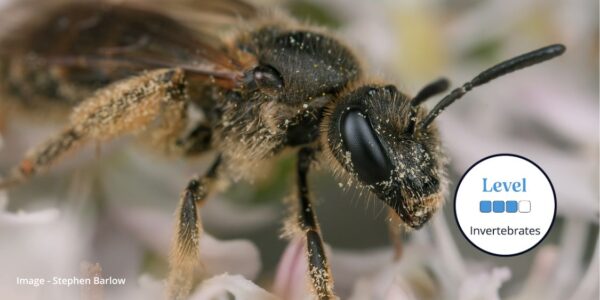
Fri 31, May 2024 18:30 - Mon 03, June 2024 16:00
MMU students - please email [email protected] to book your course place.
Sorry this course is out of stock
Progress Your Learning
This is a training course from the Field Studies Council, delivered by expert tutors with an approachable learning style. After attending this course, you may like to progress your learning with further relevant courses or branch out into other areas of natural history. The Field Studies Council offers both online and in person courses, so you can choose the learning style that suits you best.
The course gives you the opportunity to immerse yourself in a new subject and acquire novel skills. Our online portal gives you time to study at your own pace and fit the lessons around your own schedule.
If you have any questions about our online courses please check our Frequently Asked Questions
Please email [email protected] if you have any questions.
Group Bookings Made Easy
If you have a group of 10 or more individuals wanting to complete one of our courses, our team are available to discuss your options – from discounts to private team courses. Find out more!
You can rest assured that the absolute best content from an expert in environmental education will be at your fingertips. In choosing a Field Studies Council course, you will be joining thousands of people who learn with us each year.

